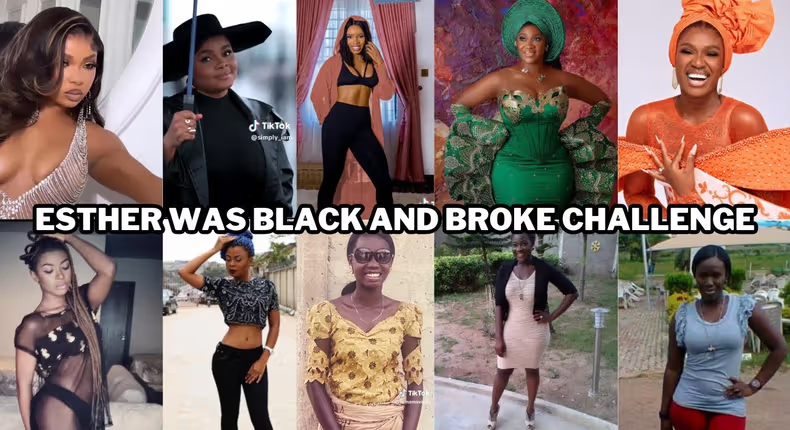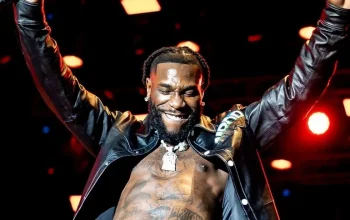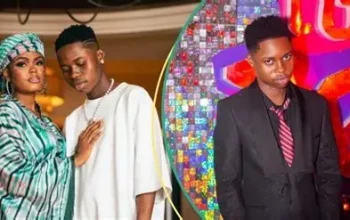Is the ‘Esther was Black and Broke’ TikTok Challenge Spreading Colorism or Just a Fun Play on Words?

In the world of social media, new trends pop up all the time. One of these trends is the “Esther was Black and Broke” challenge on TikTok. It all began with a video from a TikToker who cleverly played with words: They said, “Esther was black and broke, but when ‘Esther bleached…'” Here, “Esther bleached” is a clever way of saying “establish.” Do you catch the joke?
People on the internet caught onto this sound and started using it for their own videos. Some showed off transformations over time, while others showcased changes in their lives, like upgrading their camera quality or wearing trendier outfits. It’s like a glow-up, as people say.
Even celebrities like Mercy Eke, Toyin Abraham, Real Warri Pikin, Saga Deolu, and Tacha Akide got in on the trend. They shared their own takes on the challenge, adding to its popularity.
However, there’s been some pushback against the trend, with concerns about it promoting colorism. TV host Olive Emodi shared a video on her social media, expressing worries that the challenge might be subtly implying that being dark-skinned is unattractive.
“I’m concerned that being black is being linked with being broke… As a dark-skinned black woman who has faced colorism, even here in Nigeria, I worry that we’re sending a subtle message that dark skin isn’t beautiful. It might seem like harmless fun, but what happens when a dark-skinned child starts to dislike their skin because they’ve heard that ‘Esther was black and broke’?”
Celebrity and Influencer Support
Despite some disagreement, many celebrities and influencers echoed her sentiments in the comments. Music producer Don Jazzy showed his full support, stating that it “makes sense 100%.” Lifestyle influencer Powede Awujo also chimed in, acknowledging, “You’re right, sis! I know it’s meant to be funny, but often, a lot of issues start with humor.”
Colorism, especially within the entertainment industry, has been a significant point of contention. Actress Beverly Naya has been vocal about the colorism she’s encountered and its role in driving young women towards bleaching creams and other skin-lightening products.
Skin Bleaching in Nigeria
The World Health Organization reports that Nigeria has the highest rate of skin bleaching globally, indicating a concerning trend. The widespread availability and sale of bleaching creams suggest that this issue goes beyond mere jest and could have serious consequences.
Read also:
- Davido’s Tightly Hugging a Woman in Toilet Breaks the Internet
- Breaking News: DSS Apprehends APC Leader Aisha Galadima, in Kaduna
- EFCC Investigating Celebrities for Naira Abuse
- Viral video shows the moment Pastor Dr. Paul Enenche caught a woman ‘lying’ while sharing her testimony in a church
- MKO Abiola’s wife declares Yorubas’ secession from Nigeria
- Ladies: 7 ways drinking okra water benefits you sexually
- Big Booty Ranking: Top 10 Countries with Women having the Biggest Butts in the world
- Painful Love End: When genotype made me lose the love of my life
- Meet Oluchukwu the First Nigerian Female Officer Cadet Graduates from UK Military Academy
- Nigerian Drug Kingpin and Wife Arrested in India for Cocaine Trafficking
- Bobrisky Sentenced to 6 Months in Jail for Naira Abuse
- Shallipopi’s Latest Album ‘Shakespopi’
- Dunsin Oyekan Launch New Album: “The Great Commission” ft. Naomi Raine, Nathaniel Bassey & More



